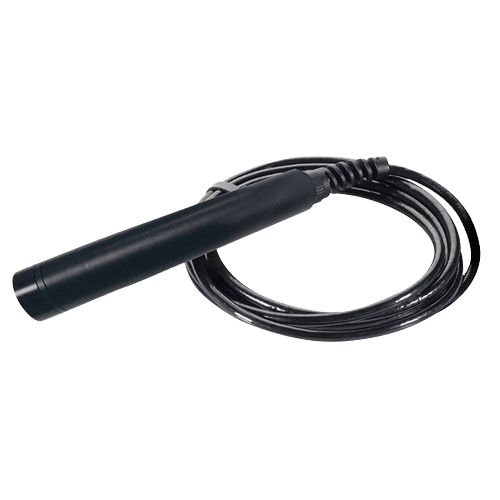
OPTOD Plastic sensor
Description
Our DO measurement OPTOD PLASTIC features our high-end luminescent optical technology, offers two different strainers to choose from and an optional antifouling solution. It’s a cost-effective solution for aquaculture applications.
Advantages
- Optical technology: no membrane or electrolyte
- No drift, reduced maintenance
- Digital communication Modbus RS-485
- Robust and waterproof POMC and PVC body
Assets
- Open communication protocol (MODBUS RTU RS485 or SDI12)
- Sensor with very low energy consumption
Similar products
Why trust AQUALABO?
AQUALABO, a French company, offers a combination of experience, innovation, international presence, adaptability, and ecological commitment, making it a trusted partner for water quality control.
FAQ OPTOD Plastic sensor
Why is optical DO measurement a good technological solution?
Optical methods offer non-invasiveness, fast response times, low maintenance, long-term stability, wide measurement ranges, and adaptability for various applications, making them superior for continuous and accurate monitoring. Optical sensors present low interference from other gases or contaminants and exhibit minimal drift over time, ensuring reliable and precise dissolved oxygen measurements.
What is the shelf-life of the DO sensor optical membrane?
Aqualabo DO membranes can last up to 24 months in continuous operation. Spare membranes can be stored in the dark for 2 years.
Can Aqualabo probes withstand difficult environments?
Yes, our sensors are available in stainless steel, titanium, and plastic versions, ensuring suitability for challenging environments, including corrosive conditions. The stainless-steel variant, with a passivation treatment, is robust and resilient, while the plastic or titanium versions provide a corrosion-resistant alternative. Whether facing aggressive industrial effluents or saline conditions, Aqualabo's probes guarantee reliable DO measurements, making them the ideal choice for diverse environmental monitoring scenarios.
What applications do Aqualabo's dissolved oxygen sensors cater to?
They find applications in diverse fields, including urban wastewater treatment, industrial effluent treatment, surface water monitoring, among others. They excel in fish farming and aquaculture.
